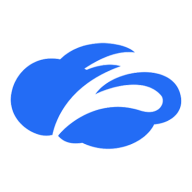


Prisma Cloud and Zscaler Zero Trust Exchange Platform operate in the cloud security category. Prisma Cloud is advantageous for comprehensive protection and integration, while Zscaler excels in secure access solutions.
Features:Prisma Cloud offers a comprehensive suite for cloud security, integrating workload protection, compliance management, and automated forensics. Its integration with RedLock, Twistlock, and PureSec ensures a robust security posture across multi-cloud environments. Zscaler focuses on secure access, notable for reliable VPN alternatives and seamless integration with cloud providers, ideal for organizations seeking secure access without traditional VPN limitations.
Room for Improvement:Prisma Cloud users indicate a need for better documentation, user interface improvements, clarity in licensing, and cloud resource management. Enhancements in API security and third-party tool integration are also required. Zscaler users suggest improving performance, simplifying the interface, supporting legacy systems, and addressing scalability and pricing concerns.
Ease of Deployment and Customer Service:Prisma Cloud offers versatile deployment in hybrid, on-premises, and public cloud setups, with generally positive customer service barring some reports of slow response times. Zscaler benefits organizations seeking minimal on-premises concerns and ease of adoption, though some experience delays in support responsiveness.
Pricing and ROI:Prisma Cloud is considered expensive, but its features may justify the cost for large enterprises, offering improved security and reduced manual risk management. Smaller organizations might find the pricing challenging. Zscaler’s pricing aligns with user scale but can be costly for small setups, with flexible licensing based on user numbers and ROI through streamlined deployment and enhanced security.
The detailed information PingSafe gives about how to fix vulnerabilities reduces the time spent on remediation by about 70 to 80 percent.
After implementing SentinelOne, it takes about five to seven minutes.
Our ability to get in and review our vulnerability stance, whether daily, monthly, weekly, or whatever it might be, has drastically improved over our prior provider.
It eliminates the need for additional hardware, making it a financially and technically sound investment.
It helped reduce risks and sped up threat detection.
From a security standpoint, we have significantly enhanced our client's security posture by implementing Prisma Cloud.
When we send an email, they respond quickly and proactively provide solutions.
They took direct responsibility for the system and could solve queries quickly.
Having a reliable team ready and willing to assist with any issues is essential.
Whenever I have issues with the solution, I will get an immediate response from the product team and they will try to close the issue as soon as possible.
When you send them a message, you get a response in a minute or two.
They can respond with technical documentation or pass on the case to the next level because it requires the development of a new feature or changing a feature due to a bug.
Sometimes, support takes time since the solution has some bugs that need fixing.
As soon as we need to add somebody, we just add them to NinjaOne, and then we have a script set up where it automatically deploys and adds them to whichever group we need.
I would rate it a 10 out of 10 for scalability.
Scalability is no longer a concern because Cloud Native Security is a fully cloud-based resource.
It's very scalable and very easy to use.
It's the type of tool that is constantly improving, and its scalability suits our environment well.
We have several clouds already and need the visibility the solution provides.
In my experience, there has been 100 percent uptime.
SentinelOne Singularity Cloud is incredibly reliable.
The cloud console is very resilient.
I cannot recall any downtime with the solution.
I would rate it a ten out of ten for stability.
I haven't seen any outages with Prisma Cloud.
If I had to ask for anything to make it easier, it would be signed images that are GPG signed and a public repository where we can get the bits from.
If they can merge Kubernetes Security with other modules related to Kubernetes, that would help us to get more modules in the current subscription.
As organizations move to the cloud, a cloud posture management tool that offers complete cloud visibility becomes crucial for maintaining compliance.
It is a SaaS solution, but some of my clients have a local regulatory requirement, and they want to install it locally on their premises.
From a developer's perspective, especially for organizations like banks developing their applications, ensuring API security before deploying them to the cloud is crucial.
Prisma Cloud is an excellent tool.
They might be able to identify if something is missing with Zscaler.
With very little negotiation involved, we just let them know what we could pay and they were willing to meet us at slightly above what we paid with Sophos, which was still very fair for what we were looking at.
The price was very, very important to us, and it came down to the price when we were doing our evaluations WatchGuard and SentinelOne.
Covering our 50,000 endpoints would have nearly bankrupted most security programs, even well-funded ones like ours.
A strategy to optimize costs will save you money.
The licensing model for data security should be compared to the native security offered by AWS and Azure.
Prisma Cloud is remarkably expensive.
The real-time detection and response capabilities of SentinelOne Singularity Cloud impressive because it is a platform that uses artificial intelligence to determine what is normal and what is abnormal and can lock down any virus it may encounter.
We were shown how ransomware can be immediately stopped in real-time. That was huge.
Our previous product took a lot of man hours to manage. Once we got Singularity Cloud Workload Security, it freed up our time to work on other tasks.
Prisma offers visibility to developers and high-level leadership because the dashboard is excellent and the alerts are comprehensive.
Its ease of integration is valuable because we need to get the solution out of the door quickly, so speed and ease matter.
Security posture management is the most valuable feature.
The solution is cloud-based with the latest inspection engines, which I find to be amazing.



SentinelOne Singularity Cloud Security protects cloud workloads, offering advanced threat detection and automated response. It integrates seamlessly with cloud environments and secures containerized applications and virtual machines against vulnerabilities.
SentinelOne Singularity Cloud Security is renowned for its efficiency in mitigating threats in real-time. The platform integrates effortlessly with existing cloud environments, ensuring robust cloud security management with minimal manual intervention. Securing containerized applications and virtual machines, it excels in threat intelligence and endpoint protection. However, improvements are needed in performance during high workload periods, and more integrations with third-party tools and better documentation would be beneficial. Users often find the installation process complex, support response times slow, and the dashboard's navigation unintuitive.
What are the key features of SentinelOne Singularity Cloud Security?In specific industries, SentinelOne Singularity Cloud Security is implemented to safeguard critical data and infrastructure. Organizations in finance, healthcare, and technology depend on its real-time threat detection and automated response to protect sensitive information. Its ability to secure containerized applications and virtual machines is particularly valuable in dynamic environments where rapid scaling is necessary.
Prisma Cloud by Palo Alto Networks delivers comprehensive security for cloud environments, focusing on workload protection, identity creation, and seamless AWS integration. Its cloud visibility and control, combined with thorough vulnerability scanning, help maintain robust security across multi-cloud platforms.
Prisma Cloud provides essential capabilities for cloud security posture management, container security, and compliance monitoring. Enterprises utilize it to secure cloud configurations, detect vulnerabilities, and ensure regulatory compliance, spanning AWS, Azure, and Google Cloud. Its runtime management, identity-based micro-segmentation, and threat detection enhance cybersecurity. Despite needing improvements in documentation, integration complexities, UI, and the need for role-based access control refinement, it remains pivotal for securing assets across cloud infrastructures, particularly with its capabilities for vulnerability scanning and CI/CD pipeline integration.
What are the key features?
What benefits or ROI should users expect?
In industries like finance, healthcare, and retail, Prisma Cloud is implemented to strengthen cybersecurity measures, facilitate regulatory compliance, and enhance governance. Organizations leverage its features to secure sensitive data, monitor configurations, and integrate security processes within CI/CD workflows, ensuring robust protection across complex cloud infrastructures.
Zscaler Zero Trust Exchange Platform acts as a VPN alternative for secure remote access, cloud protection, and zero-trust strategies. It enables secure data transmission, supports remote work, and enhances compliance through a cloud-based architecture, offering improved performance and simplified management.
Designed for organizations seeking secure application access and robust data protection, Zscaler Zero Trust Exchange Platform delivers a comprehensive solution through seamless VPN connectivity, data loss prevention, and SSL inspection. Its cloud integration ensures scalability and reliability, while its interface provides intuitive management. Companies benefit from automatic secure access, minimizing constant authentication needs, and safeguarding sensitive data. The platform allows easy deployment and integration with diverse identity providers, granting granular control for access and application segmentation. Despite powerful capabilities, enhancements are needed in speed, bandwidth, and legacy support, with users noting interface and configuration challenges.
What are the key features of Zscaler Zero Trust Exchange Platform?In specific industries, Zscaler Zero Trust Exchange has been implemented to enhance security protocols in fields like finance and healthcare. By prioritizing data protection and compliance, it assists companies in safely managing sensitive information and meeting regulatory requirements. Organizations leverage its features to ensure secure operations across remote and cloud environments, adapting to industry-specific needs with customizable access and security controls.
We monitor all Cloud Security Posture Management (CSPM) reviews to prevent fraudulent reviews and keep review quality high. We do not post reviews by company employees or direct competitors. We validate each review for authenticity via cross-reference with LinkedIn, and personal follow-up with the reviewer when necessary.